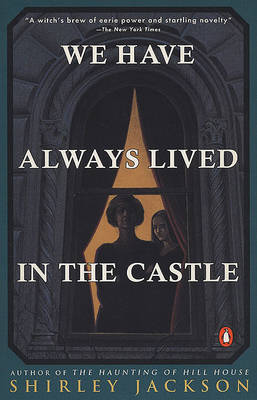Reviewed by Michael @ Knowledge Lost on
While We Have Always Lived in the Castle is the first Shirley Jackson I have read, it was in fact her final novel. I went into this book knowing nothing about the story and I found it the perfect way to experience the novel. An American gothic that is in part a haunted house story, in part a mystery, and as Jackson’s biographer Judy Opphenheimer calls it a “paean to agoraphobia”. A psychological story that explores the effects of rumours and public opinion, all told from the perspective of eighteen year old Merricat, who is an unreliable narrator.
There is a real mystery about the Blackwoods, but I was more interested in the effects the villagers had on the family. I know the isolation is a reflection of the author’s own agoraphobia and nervous conditions but I took it more as a look into social issues, essentially the effects of rumours and speculation. I cannot help but compare the book with Frankenstein. This is the beauty of fiction and the way people all have different perspectives on the same piece of literature.
I found both Constance and Merricat to be wonderful characters, they are both strong and at times unlikeable, while being mysterious and complex. Merricat has to be one of the best narrators found in literature; I never could fully understand her and she often surprised me. She is likeable but I could never trust her completely. She was an enigma and as the novel progressed and secrets revealed, I really appreciated the way Shirley Jackson crafted these characters.
There is a fine balance between the morbid and the whimsical to be found in We Have Always Lived in the Castle; it is poetic and haunting. Discovering Shirley Jackson came at the perfect time, I read this book during Halloween and I eagerly await next year to read another one of her novels. I know I could read Jackson at other times, but I do think her writing suited Halloween perfectly. I know The House of Haunting Hill is recommended, but I would love to know which of her other books should take priority.
This review originally appeared on my blog; http://www.knowledgelost.org/book-reviews/genre/horror/we-have-always-lived-in-the-castle-by-shirley-jackson/
Reading updates
- Started reading
- 1 November, 2015: Finished reading
- 1 November, 2015: Reviewed
